A Family’s Connection to the Russell Fork
Vivian Owens and her daughter Tammy have been standing up for the river for decades. Now is the time for a new economic approach in Appalachian communities that protects natural assets and provides a more sustainable future.
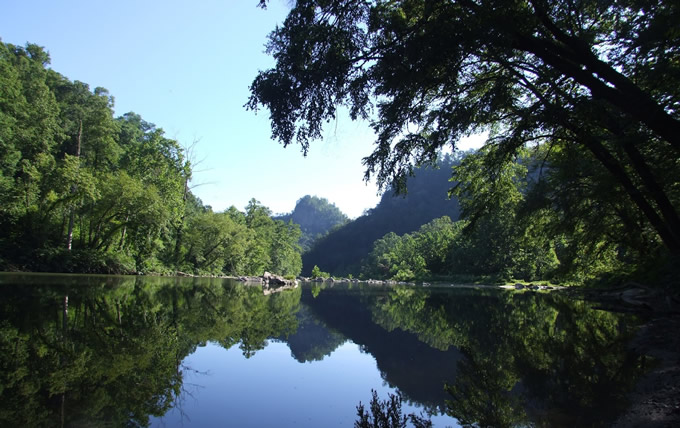
Guest post by Willie Dodson is a part of our America’s Most Endangered Rivers® series spotlighting the Russell Fork River.
For many years, passersby on route 80 near the old high school in Haysi, Virginia, could spot a strange figure out in the Russell Fork River. Any day when the weather was warm enough and the water was low enough, there she’d be, wearing a big floppy hat, and scratching around with a garden hoe at the cobble and mud along the river’s bed. At first glance, this individual (and an individual she was indeed) might have seemed to be a little off, as they say. There was, however, a meaning and a method to her work. Gary Buffington, a cross-country cyclist traveling through Haysi in 2007, chronicled his encounter with just such a character in his blog and paraphrased here:
I rang my little bike bell and yelled, “What are you doing?”
She said, “I’m moving the river!”
I shouted down, “Why?”
She said, “My house flooded in 1976 and I’ve been working on it ever since.”
So I said, “It sounds to me like the project is working perfectly if it hasn’t flooded since you began the work.”
She said, “I know. I think I’m a civil engineer and should be working for the Army Corps of Engineers.”
As I was about to pull out I shouted, “What’s your name?”
She said, “Vivian Owens, and I’m 78 years old.”
As I sped off I shouted down to her: “Goodbye Vivian Owens of the Army Corps of Engineers.”
And she said, “Have a safe trip and God be with you.”
Vivian Owens loved the Russell Fork River, the mountains that held it in place, and the communities along it. From this love grew an impulse to serve her land and people. Through the Friends of the Russell Fork, a group for which she served on the Board of Directors, Vivian volunteered countless hours cleaning up the river, monitoring its ecological well-being, and sharing its peace and beauty with others.
Vivian Owens recently passed away on August 23, 2016. Two days later, bereaved, and in the midst of funeral planning, her daughter Tammy was gracious enough to meet with staff of Appalachian Voices and the Southern Appalachian Mountain Stewards to discuss the Russell Fork, the impacts of past and potential new strip mining, and the work of building a new economy in Southwest Virginia. Some of her thoughts are captured below:
It was probably about 5 o’clock this morning; I literally felt a poke, and I heard mom’s voice say, “Tam, that’s enough. Get going. Get on with it.” So that’s why meeting you guys here was important to me — because this was important to her.
I remember growing up, when the first strip mine came in. I can still remember how devastated I was with what that did to the creek and the river and the spring-fed pond by my house in Campbell County, Tennessee, where we lived at the time. Mom encouraged me to debate and to speak out. She did too. She spoke out about what the strip mining was doing to the land and to the water sources, the well water, all those things.
Growing up, I was always in the woods. I spent my entire childhood barefoot, playing in those mountainsides, exploring old Indian ruins and catching crawdads. In the summertime, I’d get up and get my chores done, and I would be in the mountains all day long swimming in the river and running up and down the railroad tracks. Then the strip mining started. I remember just how devastating that was. There was no protection back then. It ruined our well water and everybody else’s.
I think people fundamentally know that the coal and the gas is gone, but it’s like a death. We’ve lost what was the only way of life in this area from the point that these little towns popped up. It was all we knew. It was all we did – was coal. So I feel just like in any type of grieving process there’s denial, there’s anger; and I feel like right now we’re still in that stage of denial coming into the anger.
People like my mom – that whole age group – are dying. So they’re leaving us to make a new way for this area. We have that responsibility. It needs to be in the frame of mind like my mom taught – caring for the river, caring for the mountains. No more raping the mountainsides! No more hunger games! You got the coal, so leave us be. Like this Doe Branch Mine – yeah there’s a few million dollars and maybe a new road coming in here, but in the larger view of our future, what does that really mean? It’s just prolonging the agony.
So what are we gonna create now? Are we gonna live with the ghost of that, or are we gonna bring back the life and the beauty and the culture?
As far as trying to help the community establish a new viable economy that doesn’t include further devastation of these mountains and the river, it just feels natural to me. This is what I’m supposed to be doing because it’s what mom raised me up to do.
Carrying forward her mother’s legacy, Tammy Owens is working with Appalachian Voices and anyone else who will extend the effort, to build a new economy in Haysi and Southwest Virginia that values the land and the people, not just the minerals and labor. An herbalist and organic farmer, Tammy is embarking on an innovative ginseng cultivation project utilizing both healthy wooded slopes and old mined lands. She also hopes to someday establish a tubing and kayaking business at the family homeplace that her mother worked so hard to protect from rising waters.
As we work together to build a fair, resilient and diverse economy amidst the scars of the old, it is increasingly clear that further liquidation of our natural assets in the form of mountaintop removal strip mining is a step in the wrong direction economically, on top of being an ecological catastrophe. Though the industry has died back significantly, mountaintop removal is still happening… but it doesn’t have to be. Please help us stop the proposed Doe Branch mine and take one step towards a new economy in Appalachia that works for everybody.
 Willie Dodson is the Central Appalachian Campaign Coordinator for Appalachian Voices. Appalachian Voices is an environmental non-profit committed to protecting the land, air and water of the central and southern Appalachian region, focusing on reducing coal’s impact on the region and advancing their vision for a cleaner energy future.
Willie Dodson is the Central Appalachian Campaign Coordinator for Appalachian Voices. Appalachian Voices is an environmental non-profit committed to protecting the land, air and water of the central and southern Appalachian region, focusing on reducing coal’s impact on the region and advancing their vision for a cleaner energy future.
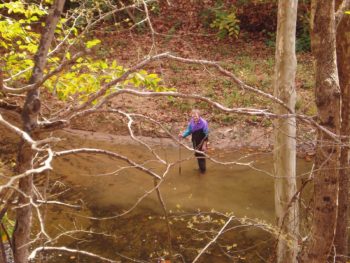

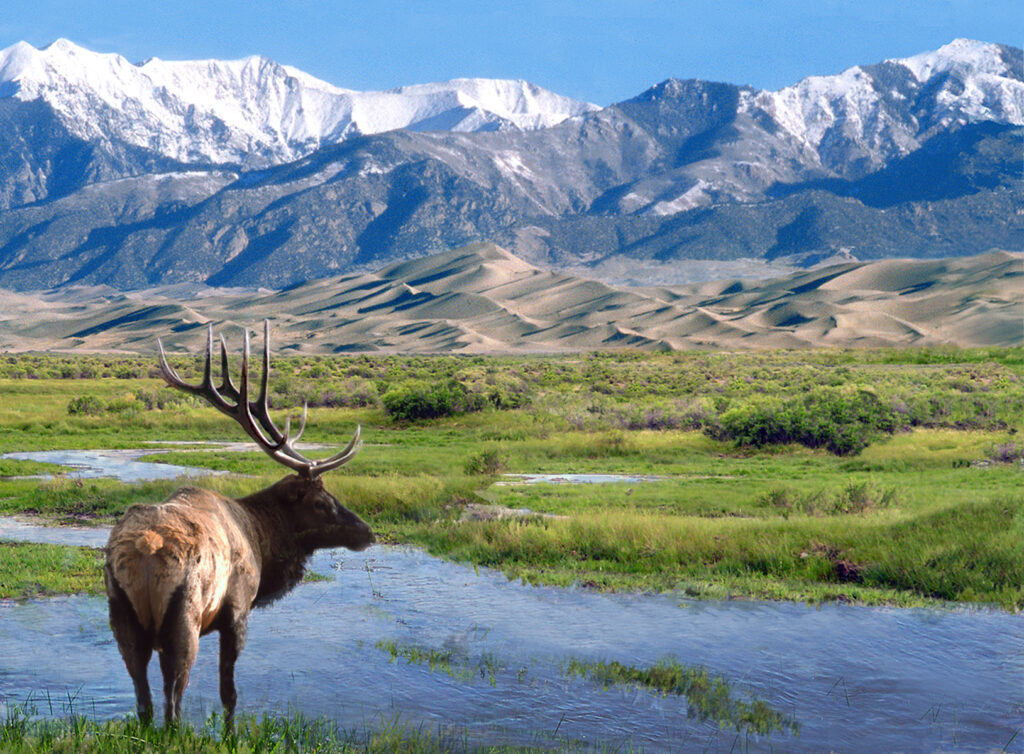
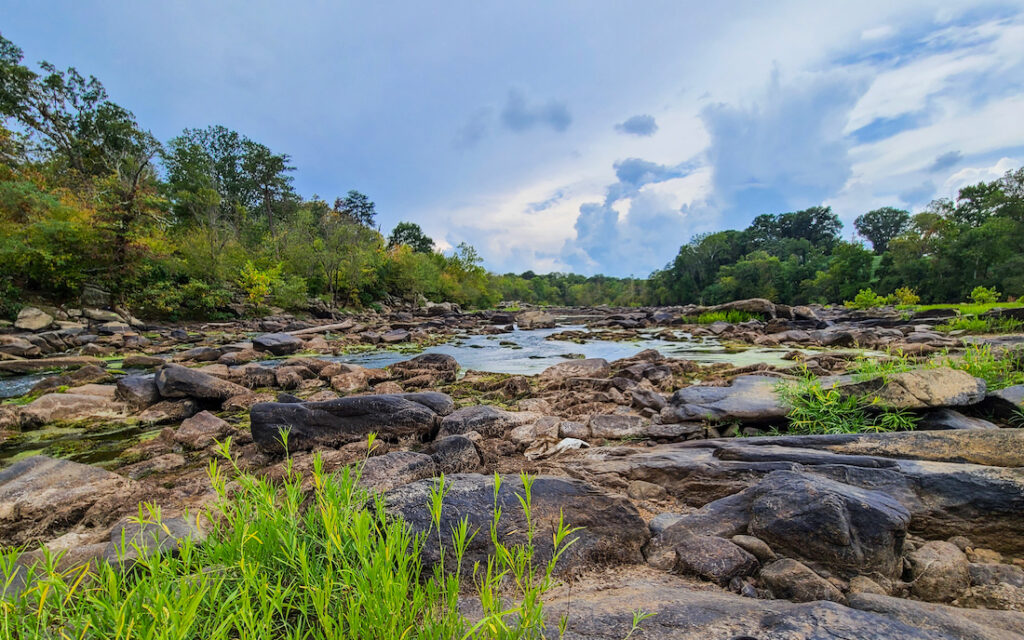
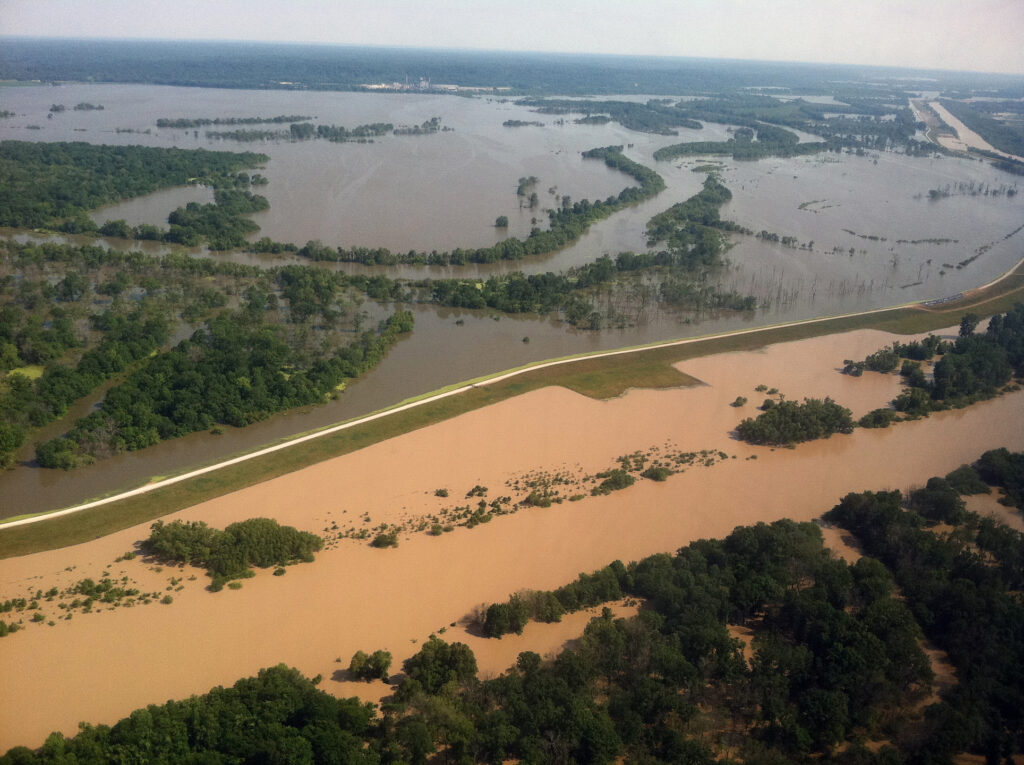


2 responses to “A Family’s Connection to the Russell Fork”
Thank you for sharing that response, Caleb. Given the history of mining impacts in the Appalachian region, American Rivers and our partners do not believe that the current requirements of draft permits for Doe Branch allow for the protection of water quality. It is critically important that the health of the river be of utmost consideration in permitting decisions for mining projects for the sake of local communities and fish and wildlife. We do not believe that is the case here.
Reply received from Director Warren with the Department of Mines, Minerals and Energy regarding my email concerning this matter.
Dear Mr. Laieski:
This is in reply to your October 14, 2016 emailed comments regarding the draft discharge permit for Paramont Coal Company Virginia LLC’s Doe Branch surface mine CSMO/NPDES permit number 1101946/0081946. Paramont Coal Company Virginia, LLC has requested renewal/reissuance of the joint mining and discharge permit through application 1009492. Our Department’s Division of Mined Land Reclamation prepared the draft as a result of the application. The proposed Doe Branch permit area is located approximately two miles northeast of Haysi in Dickenson County. No mining has taken place yet at this site.
The draft discharge permit currently contains requirements and conditions designed to protect the existing water quality of the receiving streams and the Russell Fork River. In addition, the current plans include the reclamation of over 500 acres of abandoned mined lands (AML) within the permit area. This reclamation is expected to reduce existing water quality problems associated with AML and help with watershed restoration.
Thank you for your concerns regarding the valuable environmental resources of the Russell Fork River. DMME shares concerns over protection of Virginia’s natural and environmental resources. Please visit our website page where we highlight a number of our success stories. https://dmme.virginia.gov/environmental/environmental.shtml. Prior to a decision regarding the renewal/reissuance of the joint permit, our agency will carefully consider the comments contained in your email.
John W. Warren
Director
Department of Mines, Minerals and Energy
1100 Bank Street
Richmond, VA 23219